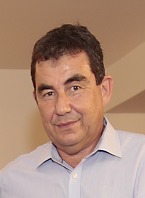A Quote by Hank Phillippi Ryan
At the core of investigative journalism is exactly the same thing that drives a page-turning thriller: telling a great story.
Related Quotes
Anyone who does investigative journalism is not in it for the money. Investigative journalism by nature is the most work intensive kind of journalism you can take on. That's why you see less and less investigative journalism at newspapers and magazines. No matter what you're paid for it, you put in so many man-hours it's one of the least lucrative aspects of journalism you can take on.


































